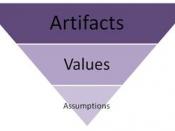The world is becoming smaller and smaller nowadays. Different countries are more closely linked to one another now than ever before. Along with the globalization progress in the world, management is no longer restricted to the domestic territory, but has gone beyond national borders and constantly confronts cultural diversity. Many companies operating in international environments have found it more and more necessary to incorporate management of cross cultures into their global entry strategies (Castillo, 2004). Differences in approaches, values and expectations between customers, suppliers, employees and team members with different cultural backgrounds have led to many business failures (Adler, 1997). In response to this, studies in cross-cultural management have gained considerable attention. Hofstede's (1980) idea of differences in national cultures was widely discusses and also used in industry practitioners' training nowadays. Increasing international activity makes additional demands on the skills of those who participate in cross-cultural activities. They are faced with interpreting the actions and attitudes of individuals and organizations operating in contexts quite different from their own.
Managers and practitioners must negotiate with groups that have not only different goals but also different methods of reaching them and different expectations of their superior (Cray & Mallory, 1998). By understanding the impact of cross-cultural differences, managers and practitioners can increase the probability of their business success. Hence there is need for managers to adjust their leadership style when managing across cultures. Their ability to interact effectively in multiple cultures, which has been labelled culture intelligence (CQ), is becoming more important in today's global business world (Crowne, 2008). Ang (2003) also stated that "knowing your CQ is essential in achieving personal and professional success". The tourism and hospitality industry, characterized by cultural and linguistic diversity, constitutes an international phenomenon of global consequence and is undergoing rapid expansion (Dimanche, 1994). Thus,


